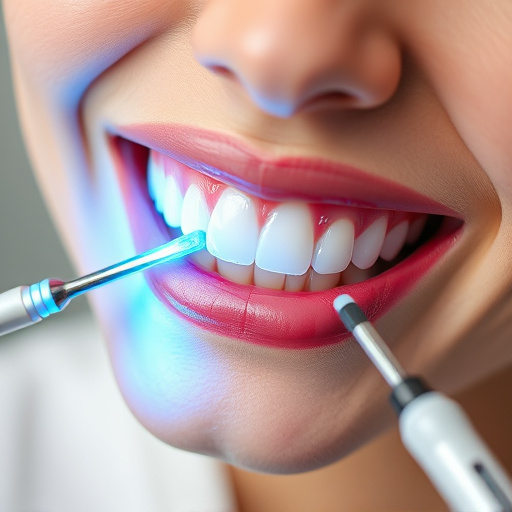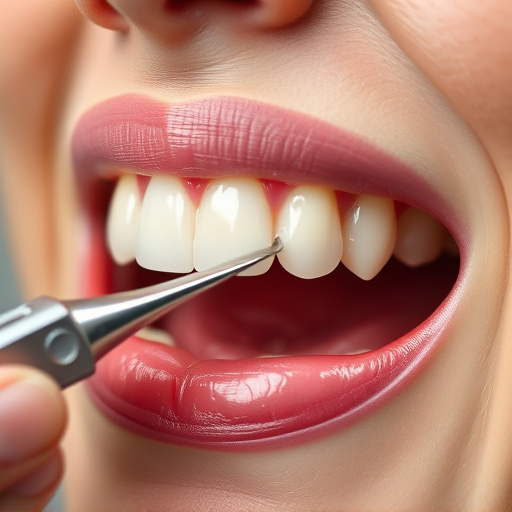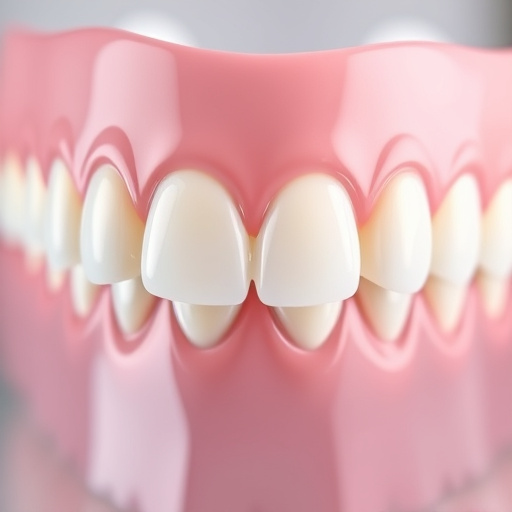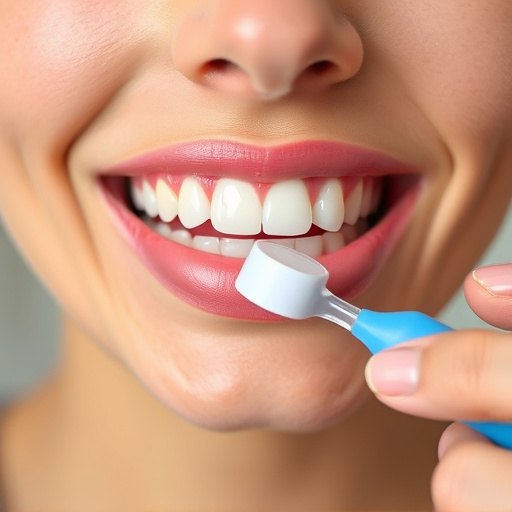Sensitive teeth can make everyday activities uncomfortable due to enamel wear, exposing dentin and its nerve connections. Modern dentistry offers solutions for teeth whitening services, including desensitizing agents that block dentin tubes, reducing sensitivity. Techniques like gel-based whitening strips, professional in-office treatments, cosmetic fillings, and dental cleanings address sensitivity and staining. Post-whitening care involves using desensitizing toothpaste, regular dental check-ups, clear aligners for misalignments, and consistent preventive measures to maintain a bright smile over time.
- Understanding Sensitive Teeth and Their Impact on Whitening
- Popular Teeth Whitening Methods for Sensitive Teeth
- Effective Solutions and Tips for Maintaining Whitened Sensitive Teeth
Understanding Sensitive Teeth and Their Impact on Whitening
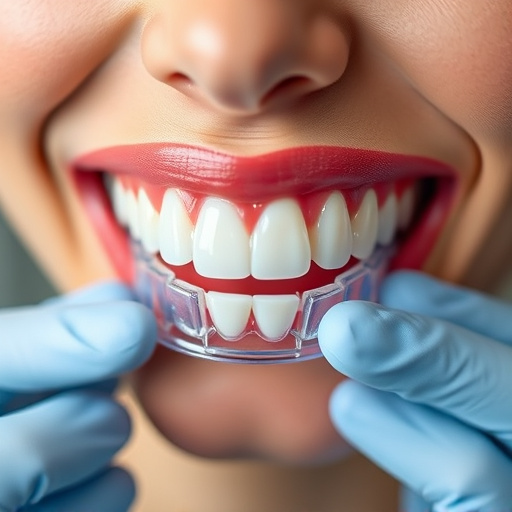
Sensitive teeth can make even the simplest activities like eating or brushing become uncomfortable experiences. This common dental issue arises when the tooth enamel, which acts as a protective layer, wears down over time, exposing the underlying dentin. Dentin contains tiny tubes that connect to the nerves, leading to heightened sensitivity to temperature changes and certain foods. As a result, individuals with sensitive teeth often experience discomfort or even pain when consuming hot or cold beverages, sugary treats, or even brushing their teeth.
When considering teeth whitening services, people with sensitive teeth may have concerns about the potential impact of whitening agents on their dentin. However, modern cosmetic dentistry has developed various solutions to cater to these needs. Restorative dentistry techniques, such as applying desensitizing agents before whitening, can help block the dentin tubes, reducing sensitivity and allowing for a more comfortable brightening process. Moreover, children’s dentistry practices have also incorporated gentle teeth whitening methods, ensuring that younger patients with sensitive teeth can enjoy a brighter smile without causing any harm to their developing oral structures.
Popular Teeth Whitening Methods for Sensitive Teeth

When it comes to teeth whitening for sensitive teeth, several popular methods offer effective solutions. One common approach is using gel-based whitening strips that are easily applied at home. These strips contain peroxide compounds that gently break down surface stains over time, making them suitable for sensitive dentition. Another preferred method is professional in-office whitening, where a concentrated gel is applied to the teeth by a dentist, often combined with a special light to accelerate the bleaching process.
For those with more severe sensitivity or staining, dental professionals might recommend cosmetic fillings or dental cleanings as part of their whitening regimen. Fillings can help restore and protect damaged tooth structures, while thorough dental cleanings eliminate plaque and tartar buildup, exposing cleaner, whiter tooth enamel. Additionally, combining these methods with regular dental fillings and check-ups ensures long-lasting results and continued oral health.
Effective Solutions and Tips for Maintaining Whitened Sensitive Teeth
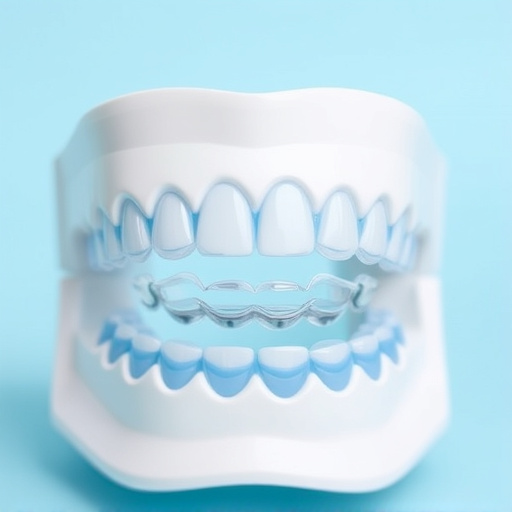
Maintaining whitened sensitive teeth requires a thoughtful approach to ensure the results last. After undergoing professional teeth whitening services, it’s crucial to adopt a specific oral care routine. Start by using a desensitizing toothpaste designed to reduce tooth sensitivity and protect against further damage. Incorporate regular dental visits for check-ups and professional cleaning to keep your smile healthy and bright.
Additionally, consider non-invasive treatments like clear aligners as part of your maintenance strategy. These customizable trays can help correct minor misalignments, reducing pressure on the teeth and gums that might cause sensitivity. Remember, immediate relief from sensitive teeth isn’t always necessary; consistent care and preventive measures can go a long way in keeping your freshly whitened smile intact.
Teeth whitening services can effectively address sensitive teeth, offering a range of solutions tailored to individual needs. By understanding the unique challenges of sensitive dentition, individuals can choose from popular methods like gel-based whiteners or laser treatments, ensuring a comfortable experience. Maintaining whitened teeth requires consistent care, including using desensitizing toothpastes and limiting acidic foods and drinks. With proper guidance, it’s possible to achieve and maintain a brighter smile while managing sensitive teeth.

